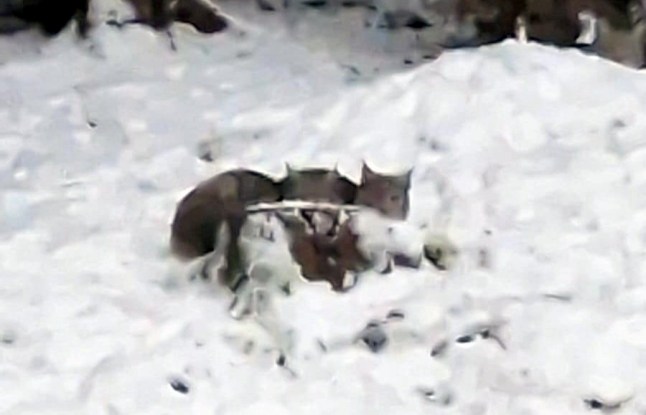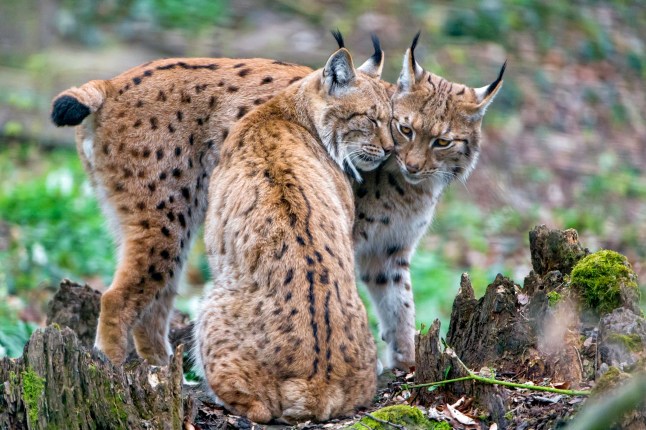
Two more wild Lynx have been spotted near a village in the Scottish Highlands, with police warning people to keep there distance.
The force said it received reports the animals had been seen in the Dell of Killiehuntly area near Kingussie in the Cairngorms National Park at about 7.10am today.
They believe the sighting is connected to the release of two lynx seen in the same area on Wednesday, which were safely captured on Thursday.
Anyone who sees the animals should not approach them, said police.
Officers are working with specially trained personnel to capture the lynx and said inquiries are continuing to establish the full circumstances of the sighting.
They are appealing to anyone who saw anything in the area, or who has any information, to call 101, quoting incident number 0387 of Friday January 10.
The two lynx already captured are now being cared for in quarantine facilities at Highland Wildlife Park, where they will stay for 30 days before being transferred to Edinburgh Zoo.
To view this video please enable JavaScript, and consider upgrading to a web
browser that
supports HTML5
video

Lynx has become a focus for rewilding campaigners who say they can keep deer populations in check, reducing damage to woodlands and allowing trees to grow.
A population of around 400 could feasibly survive in the Scottish Highlands at present, with this figure rising as woodland increases, Rewilding Britain claims.
But this release of the latest lynx into the wild is believed to be illegal.
Got a story? Get in touch with our news team by emailing us at webnews@metro.co.uk. Or you can submit your videos and pictures here.
For more stories like this, check our news page.
Follow Metro.co.uk on Twitter and Facebook for the latest news updates. You can now also get Metro.co.uk articles sent straight to your device. Sign up for our daily push alerts here.
MORE: Urgent search for missing twin sisters last seen walking along a river
MORE: The UK’s best safari destination is not what you think
MORE: People in Florida have been warned about iguanas falling from the sky











